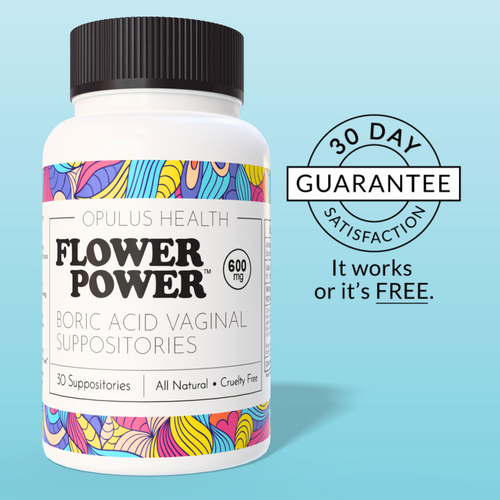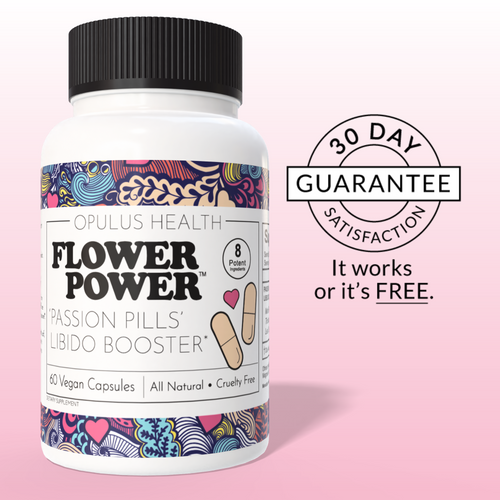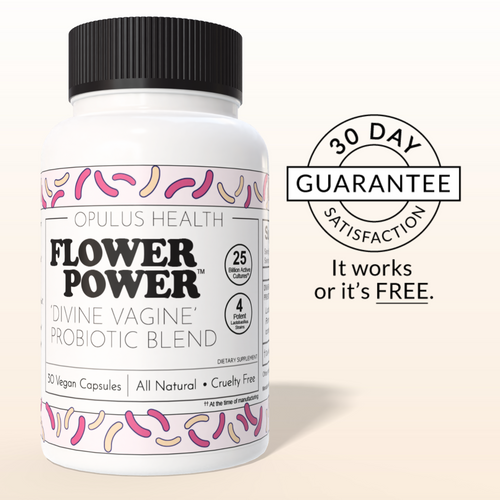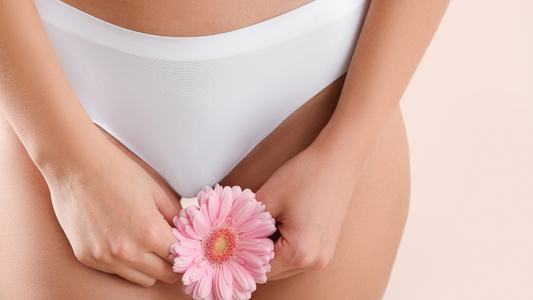Vaginal dryness is often thought of as a symptom of menopause, but many women experience it much earlier in life. In fact, younger women in their 20s, 30s, and even teens can deal with dryness that affects their comfort, confidence, and intimacy. While it can feel frustrating or even isolating, vaginal dryness at a young age is more common than you might think—and in many cases, it’s both temporary and treatable. By understanding the underlying causes and exploring natural solutions, younger women can take proactive steps toward restoring balance and comfort.
Why Vaginal Dryness Isn’t Just a Menopause Problem
When most people think of vaginal dryness, they immediately connect it to menopause. While it’s true that falling estrogen levels during menopause are a leading cause, dryness isn’t limited to women in midlife. Younger women—even in their 20s and 30s—commonly experience vaginal dryness due to a wide range of factors that have nothing to do with menopause.
Research shows that vaginal dryness is one of the most under-discussed issues in women’s health, with many women assuming they’re “too young” to be affected. The truth is, vaginal moisture depends on more than just age—it’s closely tied to hormones, overall health, stress levels, and daily habits.
Younger women may encounter dryness as a side effect of hormonal birth control, stress, or medications, while postpartum and breastfeeding women often notice changes linked to fluctuating estrogen. Even dehydration, poor diet, or the overuse of scented hygiene products can strip away natural moisture.
Common Causes of Vaginal Dryness in Younger Women
Vaginal dryness in younger women is more common than many realize—and it’s rarely a single cause. Instead, it often results from a mix of hormonal, lifestyle, and medical factors. Understanding these triggers makes it easier to find the right solutions.
1. Hormonal Birth Control
Oral contraceptives, implants, and hormonal IUDs can alter estrogen levels, leading to thinner vaginal tissue and less natural lubrication. Many women notice dryness shortly after starting or changing birth control methods.
2. Stress and Anxiety
High stress levels increase cortisol, a hormone that disrupts sexual arousal and reduces vaginal lubrication. Anxiety can also make it harder to feel relaxed and aroused, which directly impacts moisture levels.
3. Medications
Certain medications—including antidepressants, antihistamines, and acne treatments—have side effects that reduce vaginal moisture. Chemotherapy and other cancer therapies can also cause dryness in younger women.
4. Postpartum and Breastfeeding Hormonal Changes
After childbirth, estrogen levels drop significantly. For breastfeeding women, prolactin (the milk-producing hormone) further suppresses estrogen, often leading to vaginal dryness for weeks or months.
5. Hygiene Habits
Over-washing, douching, or using fragranced soaps and cleansers can strip away natural oils and disrupt the vaginal microbiome, leaving tissues dry and irritated.
6. Dehydration and Poor Diet
Not drinking enough water, consuming excessive caffeine or alcohol, and lacking healthy fats in the diet can all reduce natural hydration and elasticity of vaginal tissues.
7. Underlying Health Conditions
Autoimmune disorders, thyroid imbalances, or uncontrolled diabetes can affect estrogen levels and blood flow, making dryness more likely.
Emotional and Intimate Impact of Vaginal Dryness
While vaginal dryness is a physical condition, its effects go far beyond discomfort. For many younger women, the symptoms—burning, irritation, or pain during intimacy—can lead to emotional stress and strain in relationships.
1. Confidence and Self-Image
Experiencing dryness at a young age can leave women feeling frustrated, embarrassed, or even “abnormal.” These feelings may lower confidence and make women hesitant to talk about the issue, even with close friends or healthcare providers.
2. Intimacy and Connection
Discomfort during sex (dyspareunia) is one of the most common consequences of vaginal dryness. Pain or lack of lubrication can turn intimacy into a source of anxiety rather than pleasure, sometimes creating distance between partners.
3. Communication Barriers
Because vaginal dryness is often assumed to be a “menopause-only” issue, younger women may feel uncomfortable bringing it up with their partners. This silence can increase tension or misunderstandings in relationships.
4. Emotional Health
Persistent discomfort or a reduced interest in intimacy can contribute to feelings of stress, sadness, or even depression. The connection between physical well-being and emotional well-being is strong, and untreated dryness can affect overall quality of life.
5. Empowerment Through Awareness
The most important takeaway is this: vaginal dryness is not something to be ashamed of. It is a common and manageable health concern that affects women of all ages. Recognizing the emotional side of the condition helps normalize the conversation and encourages women to seek relief.
Natural Lifestyle Solutions for Younger Women
The good news is that many cases of vaginal dryness in younger women can be improved through simple, sustainable lifestyle changes.
-
Stay hydrated: Drinking enough water each day supports tissue elasticity and natural lubrication.
-
Balanced diet: Incorporate omega-3 fatty acids (salmon, walnuts, chia), phytoestrogen-rich foods (soy, flaxseed, legumes), and probiotics (yogurt, kefir, supplements) to support hormonal balance and a healthy vaginal microbiome.
-
Manage stress: Practices like meditation, yoga, and journaling help regulate cortisol levels, which directly influence hormonal and sexual health.
-
Gentle care: Avoid harsh soaps or fragranced cleansers that strip natural oils; instead, choose pH-balanced, plant-based products designed for feminine wellness.
-
Regular exercise: Improves circulation, supports hormonal balance, and enhances overall vitality—all of which contribute to natural moisture levels.
When to Consider Natural Supplements
For younger women who want more consistent, long-term relief, natural supplements can be a game-changer. She Juicy Vaginal Moisture Supplement is a hormone-free option made with Slippery Elm Bark and botanical extracts that hydrate vaginal tissue from within. Unlike lubricants, which provide short-term comfort, supplements like She Juicy work daily to nourish tissue, support balance, and promote lasting hydration—safely and naturally.
When to Seek Medical Guidance
If vaginal dryness is severe, persistent, or paired with pain, itching, or recurring infections, it’s important to talk to a gynecologist. Seeking help is proactive—not something to feel embarrassed about. Vaginal dryness is a legitimate health issue, and a professional can rule out underlying conditions and guide you toward the right care.
FAQ: Vaginal Dryness in Younger Women
Can young women experience vaginal dryness?
Yes. Vaginal dryness can affect women of any age—not just those in menopause. Younger women may notice it due to stress, birth control, medications, or lifestyle factors.
Does birth control cause vaginal dryness?
Some hormonal contraceptives can lower estrogen levels, which reduces natural lubrication. If dryness develops after starting birth control, talk to your doctor about alternative options.
Can stress cause vaginal dryness?
Absolutely. Stress increases cortisol, which disrupts hormone balance and interferes with arousal and natural hydration. Managing stress through mindfulness, yoga, or journaling can help restore balance.
What’s the best natural solution for vaginal dryness in young women?
A holistic approach works best—hydration, a balanced diet, gentle self-care, and hormone-free supplements like She Juicy can naturally restore comfort and moisture.
When should I see a doctor about vaginal dryness?
If vaginal dryness is persistent, painful, or affecting intimacy and quality of life, it’s important to consult a gynecologist. Professional guidance ensures you rule out underlying health issues.
Key Takeaways
-
Vaginal dryness in young women is common and linked to hormones, lifestyle, and stress.
-
Natural solutions—hydration, diet, stress management—often provide relief.
-
Supplements like She Juicy can support hydration from within, hormone-free.
-
Persistent or painful dryness should be addressed with a healthcare provider.
Conclusion
Vaginal dryness doesn’t just affect women going through menopause—it can impact younger women too, often for reasons like stress, medications, or birth control. The good news is, there are natural, effective ways to restore balance and comfort. By combining healthy lifestyle habits with hormone-free support like She Juicy, you can feel more confident, hydrated, and connected to your body.
Ready to take the first step toward natural hydration and comfort? Explore She Juicy Vaginal Moisture Supplement and discover Flower Power’s clean, hormone-free solutions today.

















